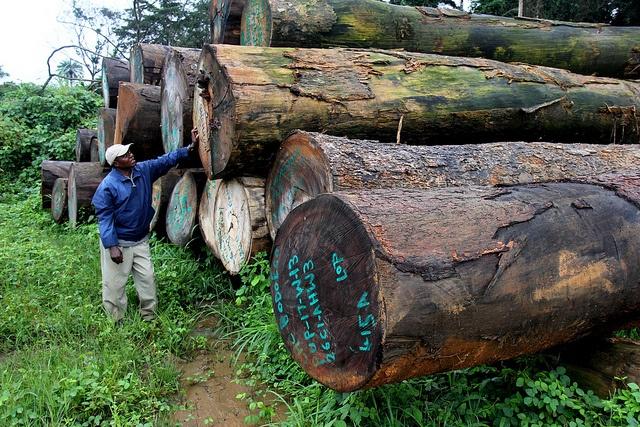
Heads of government, business leaders and activists met in New York, this week for the one-day U.N. Climate Summit. One thing is for certain: If we are to reduce greenhouse gas emissions globally, we have to stop deforestation, which is the second leading contributor of carbon emissions after burning fossil fuels.
On the same day delegates gathered at the summit, Liberia and Norway announced a partnership to protect forests in the African country. Norway will support Liberia’s efforts with up to $150 million until 2020. Announced at a joint press conference, the partnership means Liberia will become the first African nation to stop deforestation in exchange for aid from a developed country. In the first years, Norway will devote up to $70 million to implement policy measures and the necessary institution building.
The measures to be implemented in Liberia in the first phase include:
- Not issuing any new logging concessions until all concessions have been reviewed by an independent body
- Building capacity in relevant institutions and increasing efforts to enforce the law and strengthen forest governance
- Placing 30 percent or more of Liberia’s forest estate under protected area status before 2020
- Piloting direct payments to communities for protecting forest
- Addressing all key existing and potential drivers of forest related emissions
- Developing appropriate measurement and reporting systems for carbon emissions from forests
Liberia’s forests are under threat from commercial and chainsaw logging for local markets and the clearing of forests for agricultural and charcoal production. Liberia has 43 percent of the remaining Upper Guinea forests in West Africa and is home to western chimpanzees, forest elephants, rare zebra duikers, pygmy hippopotamuses and leopards. Liberia is also listed as one of 34 global biodiversity hotspots.
Norway and Germany announce partnerships with Peru to halt deforestation
On the same day, Norway and Germany announced partnerships with Peru to stop deforestation and forest degradation in the Peruvian Amazon. Peru agreed to allow stakeholders participate in carbon emissions reduction initiatives, respect the rights and proposals of indigenous communities, increase the areas titled to indigenous peoples by at least 5 million hectares, and include at least 2 million hectares in payments for conservation performance of indigenous communities. Until 2017, up to $47 million from Norway will be devoted to implementing reforms and building the institutions needed. From 2017 to 2021, Norway will contribute up to $240 million for results on reduced deforestation. Germany will continue its current support to Peru.
Peru has over 68 million hectares of forests, with one of the five largest, most diverse and best preserved tropical forests in the world. Peru’s deforestation rate is low, but it accounts for about 71 million tons of carbon emissions annually. The Peruvian Amazon is under pressure from agriculture, extractive industries and infrastructure projects. About 350,000 indigenous people live in the Peruvian Amazon and some have never established contact with the outside world.
Governments, businesses, civil society and indigenous pledge to stop deforestation
Governments, businesses, civil society and indigenous peoples endorsed the New York Declaration on Forests, which pledges to cut deforestation in half by 2020 and to end it within the next decade. The Declaration also calls for an area of forests and croplands larger than India -- over 350 million hectares -- to be restored, which would avoid between 4.5 and 8.8 billion tons of carbon dioxide every year by 2030.
Specific commitments included over 20 global food companies committing to source deforestation-free palm oil. Several European countries committed to developing new public procurement policies to sustainably source commodities like palm oil. The palm oil industry is responsible for deforestation in Indonesia and Malaysia, the top two sources of the global supply of palm oil.
Image credit: Flickr/Travis Lupick

Gina-Marie is a freelance writer and journalist armed with a degree in journalism, and a passion for social justice, including the environment and sustainability. She writes for various websites, and has made the 75+ Environmentalists to Follow list by Mashable.com.














